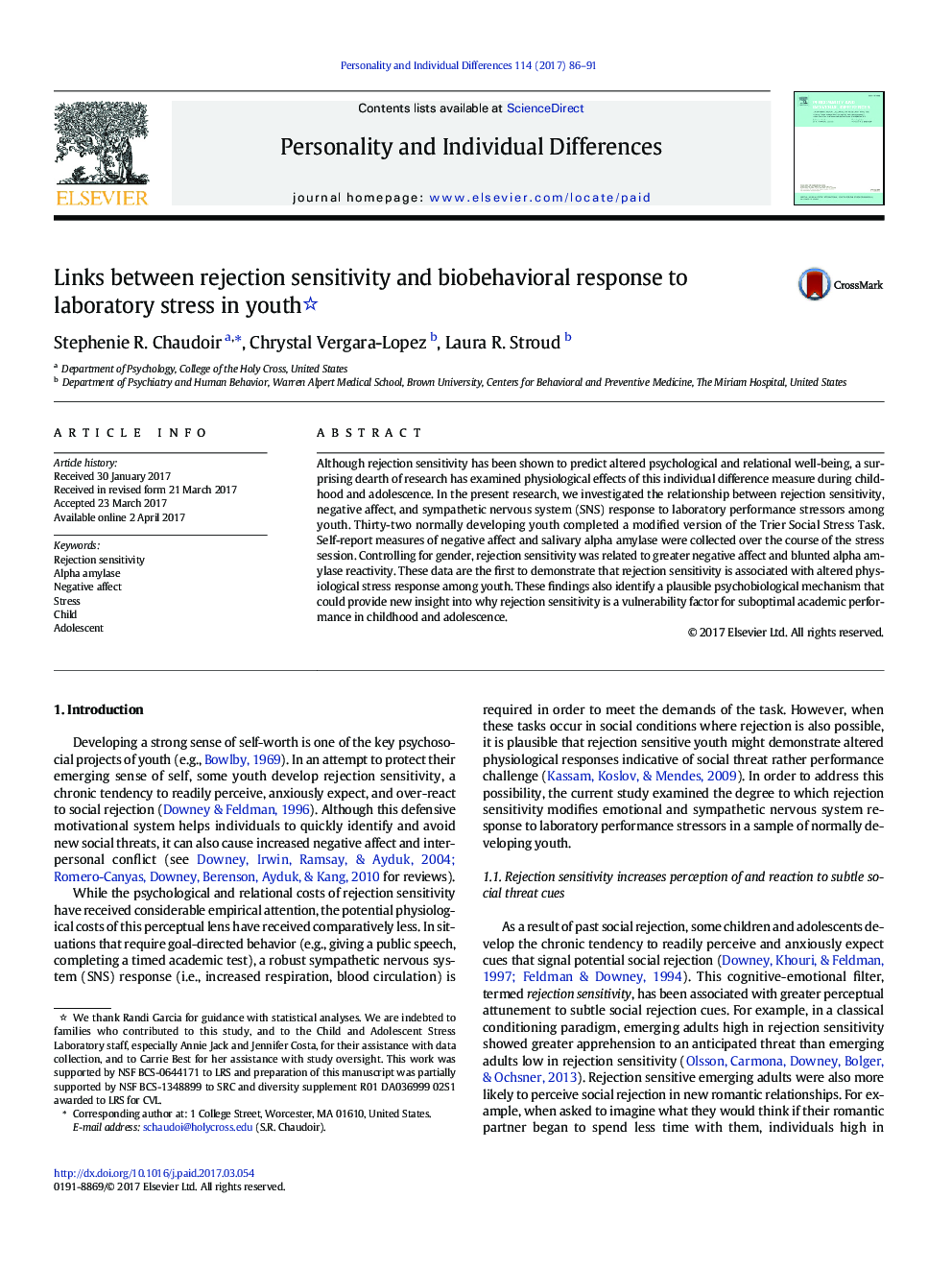| Article ID | Journal | Published Year | Pages | File Type |
|---|---|---|---|---|
| 5035880 | Personality and Individual Differences | 2017 | 6 Pages |
â¢Normally developing youth completed a modified Trier Social Stress Task.â¢RS predicted greater negative affect but blunted alpha amylase reactivity.â¢Findings are first to demonstrate physiological stress responses associated with RS.
Although rejection sensitivity has been shown to predict altered psychological and relational well-being, a surprising dearth of research has examined physiological effects of this individual difference measure during childhood and adolescence. In the present research, we investigated the relationship between rejection sensitivity, negative affect, and sympathetic nervous system (SNS) response to laboratory performance stressors among youth. Thirty-two normally developing youth completed a modified version of the Trier Social Stress Task. Self-report measures of negative affect and salivary alpha amylase were collected over the course of the stress session. Controlling for gender, rejection sensitivity was related to greater negative affect and blunted alpha amylase reactivity. These data are the first to demonstrate that rejection sensitivity is associated with altered physiological stress response among youth. These findings also identify a plausible psychobiological mechanism that could provide new insight into why rejection sensitivity is a vulnerability factor for suboptimal academic performance in childhood and adolescence.
